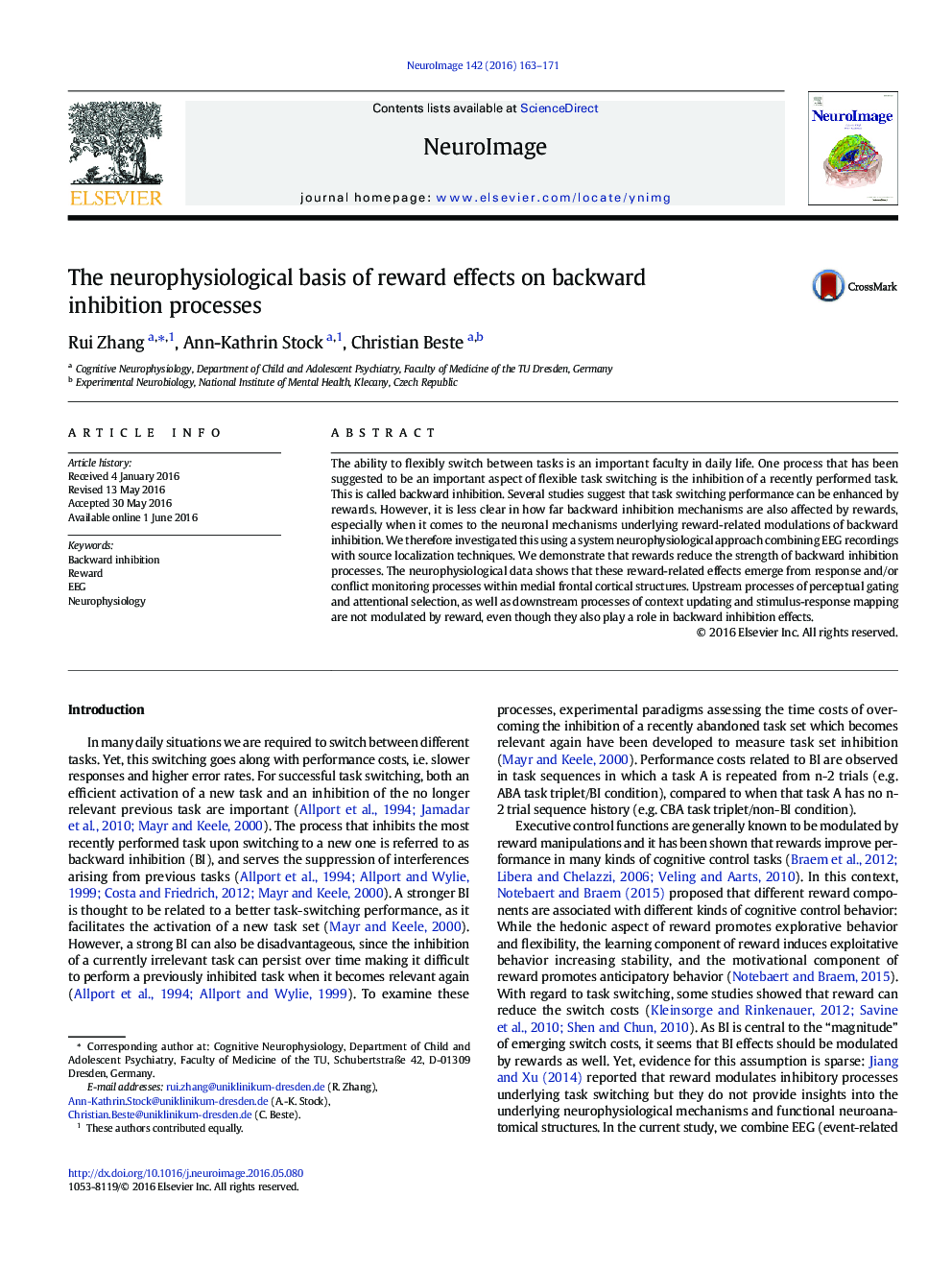| Article ID | Journal | Published Year | Pages | File Type |
|---|---|---|---|---|
| 5631427 | NeuroImage | 2016 | 9 Pages |
â¢Neural mechanisms of reward-related changes in backward inhibition are examined.â¢Rewards reduce the magnitude of backward inhibition.â¢Rewards affect response and/or conflict monitoring processes in the ACC.â¢Perceptual and attentional selection and context updating are unaffected by rewards.
The ability to flexibly switch between tasks is an important faculty in daily life. One process that has been suggested to be an important aspect of flexible task switching is the inhibition of a recently performed task. This is called backward inhibition. Several studies suggest that task switching performance can be enhanced by rewards. However, it is less clear in how far backward inhibition mechanisms are also affected by rewards, especially when it comes to the neuronal mechanisms underlying reward-related modulations of backward inhibition. We therefore investigated this using a system neurophysiological approach combining EEG recordings with source localization techniques. We demonstrate that rewards reduce the strength of backward inhibition processes. The neurophysiological data shows that these reward-related effects emerge from response and/or conflict monitoring processes within medial frontal cortical structures. Upstream processes of perceptual gating and attentional selection, as well as downstream processes of context updating and stimulus-response mapping are not modulated by reward, even though they also play a role in backward inhibition effects.
